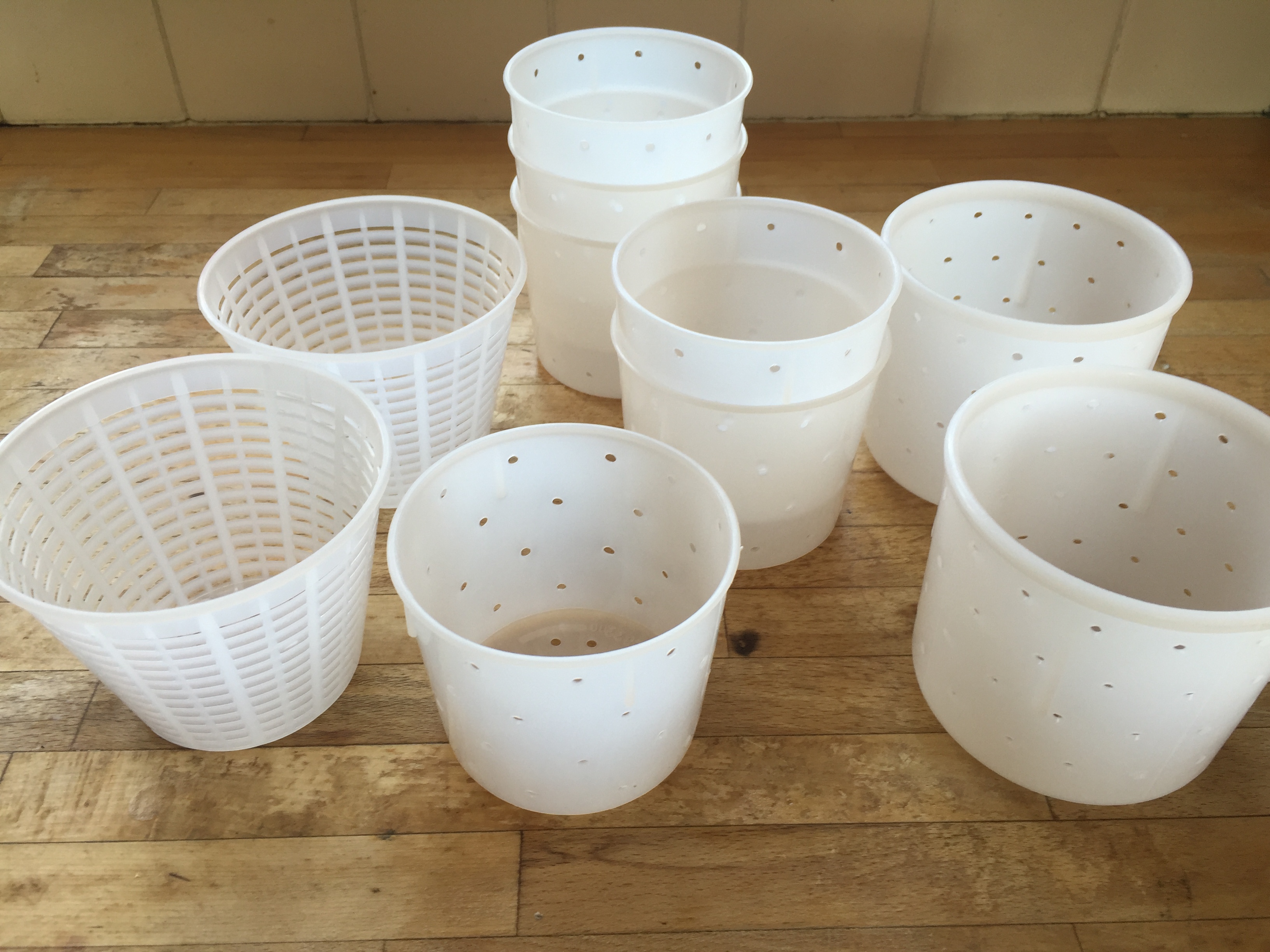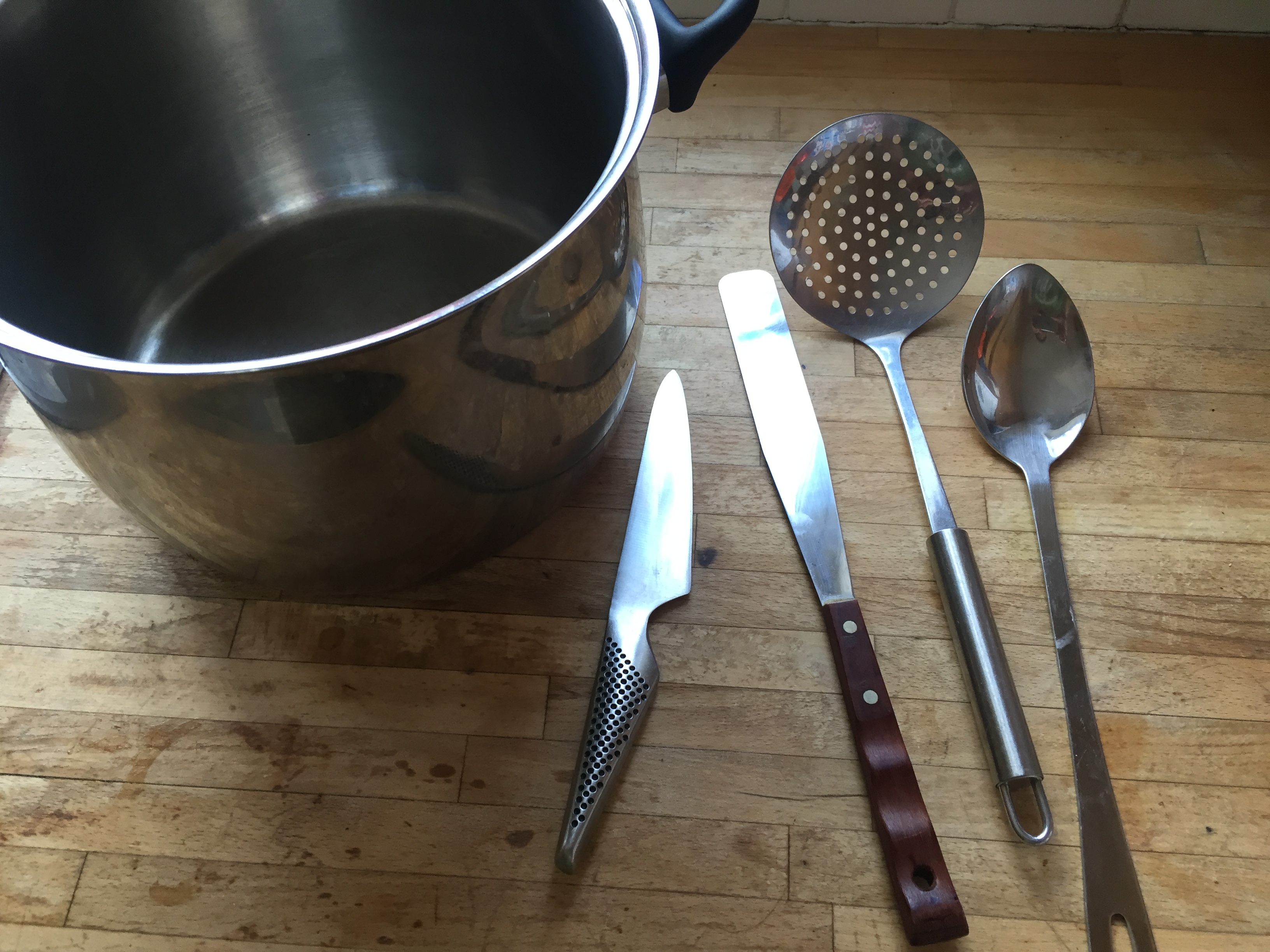With my first cheeses (I hope) maturing nicely, it’s clear that I’m going to need kit of my own if I’m going to start making cheeses by myself. The sky’s the limit when it comes to this sort of thing but I don’t want to go overboard just yet. I don’t yet know what sort of cheese I eventually want to produce and this will have an impact on what equipment I will need. For now, I’m going to buy at the lower end of the price range and get some generic equipment that can be used for a range of cheese types. I can buy the high end stuff once I know what I’m doing.
Cheese moulds, which are used for draining the curds and determine the shape and size of the cheese, are surprisingly expensive – given that they are simply food grade plastic forms. Apparently quite a few artisan cheese makers use water plant baskets which you can pick up for a fraction of the price – although technically this would not be acceptable from the environmental health point of view. Luckily I’ve got several to hand courtesy of the River Cottage course and these will allow me to experiment with both soft and hard cheeses and I can even keep making Ricotta – although I never find Ricotta to be something to write home about. I’ve also got a number of draining mats left over from the course so no need to buy more of those right now.
Most of the equipment I need can be found on Amazon and I’m soon tooled up with a pH meter, a probe thermometer, some digital scales accurate to 0.01g and several screw-top plastic containers for storing my cultures in the freezer. I also bought a much praised book, Mastering Artisan Cheesemaking by Gianaclis Caldwell. She’s an American and so the recipes need a little conversion but it appears to be the best book out there at the moment (Paul Thomas has one coming out later this year).
The cultures themselves are obviously a little more rarefied. The two biggest and most commonly recommended manufacturers are Danish bio companies, Danisco and Chr. Hansen – but artisan producers can pick up small quantities of the cultures from specialist cheese making suppliers. I’ve been using a combination of Goat Nutrition and Moorlands Cheesemakers, who happily enough are just down the road from me in Castle Cary so I can call up Kathrin and go and collect myself. They’ll also supply cheese moulds, draining mats, packaging materials and a host of other items – but my advice is not to go mad from the get-go. There’ll be time enough for that…
Everything else can be found in most kitchens. Wooden spoons are to be avoided – stainless steel is best. A heavy-bottomed stockpot (8l. capacity), a slotted spoon, a regular stirring spoon, a palette knife and a kitchen knife and I’m ready to go.

